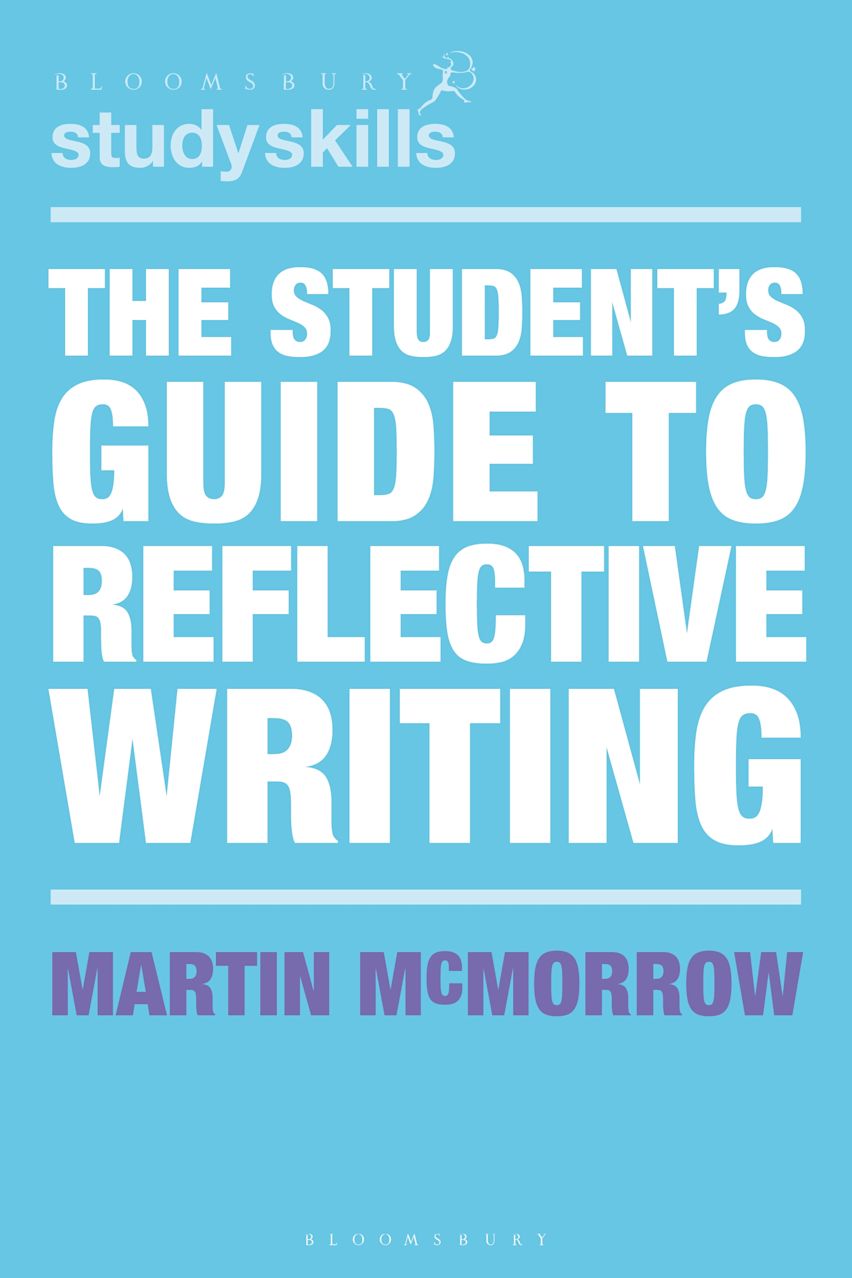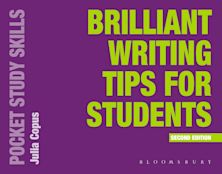- Home
- ACADEMIC
- Study Skills
- Writing Skills
- The Student's Guide to Reflective Writing
Inspection copy added to basket
Choose your preferred format. If you would prefer an ebook and it is not displayed below, please visit our inspection copies page.
Please note ebook inspection copies are fulfilled by VitalSource™.
Buy from Bloomsbury eTextBooks
You are now leaving the Bloomsbury Publishing website. Your eBook purchase will be with our partner https://www.vitalsource.com.
Your credit card statement will show this purchase originating from VitalSource Technologies. They will also provide any technical assistance you might require.
You must sign in to add this item to your wishlist. Please sign in or create an account
Description
From your studies to your career, reflection and reflective writing is a key skill for personal and professional development. However, reflective writing requires a different approach to essays or reports – it can be difficult to know how to accomplish it.
Written in a supportive and inclusive tone, The Student's Guide to Reflective Writing is an ideal resource for anyone faced with reflective writing assignments. It provides clear and practical advice on every step of the process, showing you how to:
- Record your experiences
- Choose what to write about
- Structure your assignment
- Write reflectively using appropriate tone and language; and
- Incorporate theory and refer to professional skills and competencies
Throughout the book, there are a wealth of practice tasks and detailed examples of reflective writing from a range of disciplines. It also contains a glossary of sentence structures to help you get started and build your confidence.
This hands-on and supportive guide equips you with the skills to write critically, reflectively and successfully.
Table of Contents
2. Getting your head around reflective writing assignments
3. Keeping a reflective journal
4. Reflective planning, time management and task analysis
5. Narrative reflection – selecting and summarising experiences
6. How to question and evaluate learning experiences
7. How to use theory to write critically about your experiences
8. How to set out new learning and action goals
9. How to complete and edit and reflective assignment
10. How to write reflectively as a professional
Feedback on practice tasks
References
Appendix A: The language of reflection
Appendix B: Complete examples of reflective writing
Product details

| Published | 21 Mar 2024 |
|---|---|
| Format | Ebook (PDF) |
| Edition | 1st |
| Extent | 160 |
| ISBN | 9781350323049 |
| Imprint | Bloomsbury Academic |
| Series | Bloomsbury Study Skills |
| Publisher | Bloomsbury Publishing |
About the contributors
Reviews
-
'This book offers advice and examples for reflective practice, academic writing, time management, resilience, leadership, study hacks and more – a unique compendium to guide and support readers through undergraduate and postgraduate study.'
Denyse King, Lecturer in Midwifery
-
'Super-thorough, clear and accessible…I particularly like the progression from the fundamentals of reflective writing to an in-depth look into how to engage with the various aspects of incorporating theory into a reflective account.'
Emily Salvesden, Lecturer, University of Reading, UK


































